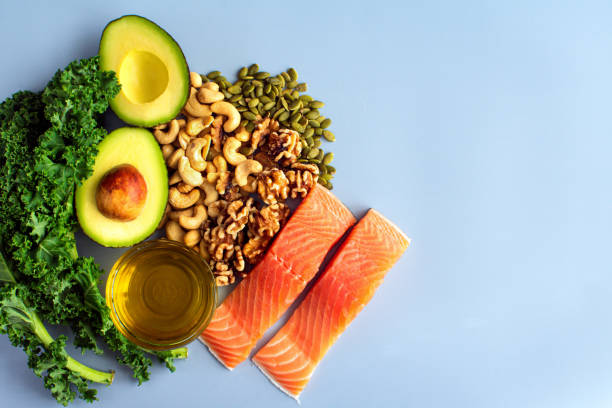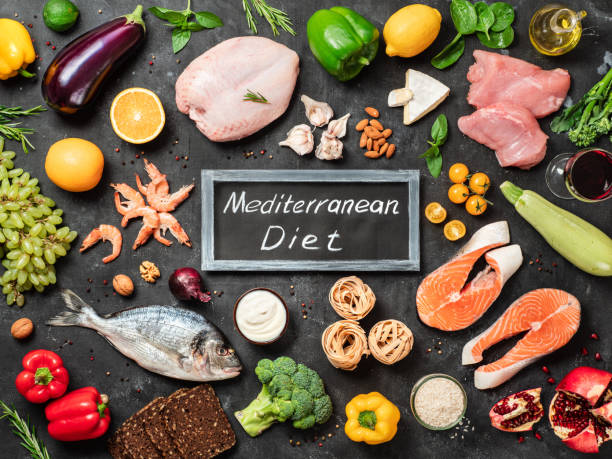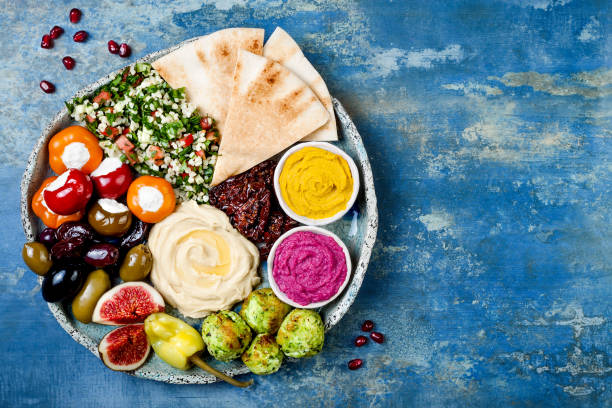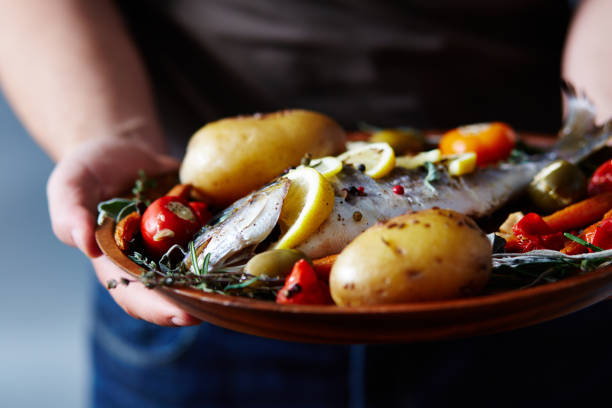Exploring the Delights of Mediterranean Cuisine: A Journey Through Flavors
The Mediterranean region is a captivating tapestry of cultures, landscapes, and history. Beyond its stunning beaches and charming villages, the cuisine of the Mediterranean is a culinary symphony that captures the essence of its diverse cultures. With a rich history dating back thousands of years and an emphasis on fresh, seasonal ingredients, Mediterranean cuisine is more than just a way of eating; it's a lifestyle, a celebration of flavors that tells the story of the region's people and their connection to the land and sea.
1. A Tapestry of Cultures: Origins of Mediterranean Cuisine
Mediterranean cuisine is a testament to the region's history of cross-cultural exchange. The interconnectedness of Mediterranean cultures, including Greek, Italian, Spanish, Moroccan, Turkish, and more, has resulted in a culinary heritage that seamlessly blends traditions and ingredients. It's a reflection of the centuries-old interactions among traders, conquerors, and explorers who shaped the Mediterranean's culinary landscape.
2. The Power of Olive Oil: Liquid Gold of the Mediterranean
Olive oil is at the heart of Mediterranean cooking, often referred to as the "liquid gold" of the region. Its use isn't just limited to cooking; it's a fundamental ingredient that enhances flavors and textures. Whether drizzled over salads, used to sauté vegetables, or even infused with herbs for dipping bread, olive oil imparts a distinct richness and depth that defines Mediterranean cuisine.
3. Sun-Kissed Flavors: Fresh and Seasonal Ingredients
Mediterranean cuisine thrives on fresh, locally sourced ingredients. The sun-drenched climate of the region yields an abundance of vibrant vegetables, ripe fruits, and flavorful herbs. From the sun-ripened tomatoes of Italy's Caprese salad to the tangy pomegranates of Middle Eastern dishes, each ingredient is carefully selected to create a harmonious balance of flavors.
4. A Symphony of Aromatics: Herbs and Spices
Aromatic herbs and spices are the soul of Mediterranean cuisine, infusing dishes with captivating scents and tastes. Basil, oregano, thyme, rosemary, and mint are just a few examples of the herbs that elevate dishes to new heights. From Moroccan tagines with their exotic blend of spices to Greek souvlaki with oregano and lemon, these seasonings create a sensory experience that transports you to the region's bustling markets and fragrant gardens.
5. Wholesome Grains: From Couscous to Pasta

Grains have played a pivotal role in Mediterranean cuisine for centuries, providing sustenance and versatility. Couscous, made from durum wheat, is a staple in North African countries like Morocco and Tunisia. Meanwhile, Italy's gift to the culinary world, pasta, is celebrated in countless shapes and sizes, each pairing perfectly with the region's robust sauces and fresh ingredients.
6. Mezze: Small Plates, Big Flavors
Mezze, a cherished tradition across Mediterranean cultures, exemplifies the convivial nature of the cuisine. These small plates, rich in variety and flavor, encourage communal dining and conversation. From hummus and falafel to stuffed grape leaves and creamy tzatziki, mezze platters showcase the art of sharing and indulging in a tapestry of tastes.
7. The Perfect Marriage: Cheese and Wine
The Mediterranean's love affair with cheese and wine is legendary. Each region boasts its own array of cheeses, from the crumbly feta of Greece to the aged Manchego of Spain. Paired with local wines, these cheeses enhance the dining experience, offering a symphony of textures and tastes that dance across the palate.
8. Sweet Temptations: Desserts from the Mediterranean
Mediterranean desserts are a testament to the region's artistry with flavors. Honey, nuts, and dried fruits are often featured, creating desserts that are both indulgent and balanced. Baklava, a masterpiece of layered phyllo dough, nuts, and sweet syrup, represents the intricate craftsmanship that goes into each treat.
9. Embracing a Healthy Lifestyle
The Mediterranean diet, characterized by its emphasis on fresh produce, lean proteins, and healthy fats, is renowned for its health benefits. Research has shown that following this dietary pattern can lead to reduced risks of heart disease, diabetes, and other chronic illnesses. It's a lifestyle that encompasses not just what you eat, but how you eat—savoring each bite and cherishing meals as a social and nourishing experience.
10. Bringing Mediterranean Magic to Your Table
You don't need to travel to the Mediterranean to savor its flavors; you can bring the magic to your own table. Experiment with recipes that capture the essence of the cuisine, whether it's a hearty Spanish paella, a fragrant Moroccan tagine, or a simple Greek salad. Incorporate the staples—olive oil, fresh herbs, grains, and seasonal vegetables—into your meals to infuse a touch of the Mediterranean into your everyday life.
In conclusion, Mediterranean cuisine is a journey through history, culture, and flavors. It's a celebration of the land's bounty and the sea's treasures, a testament to the art of blending tradition with innovation. By embracing the principles of freshness, balance, and community, you can embark on your own culinary adventure, discovering the joys of Mediterranean cuisine one delicious bite at a time.
#MediterraneanCuisine #CulinaryJourney #FlavorsOfTheMediterranean #HealthyEating #FoodExploration
- Mediterranean cuisine
- Mediterranean flavors
- Culinary journey
- Mediterranean recipes
- Fresh ingredients
- Olive oil
- Aromatic herbs and spices
- Mezze platters
- Healthy eating
- Mediterranean diet
- Sun-kissed ingredients
- Wholesome grains
- Cheese and wine pairing
- Mediterranean desserts
- Healthy lifestyle
- Cooking with olive oil
- Regional specialties
- Sharing meals
- Communal dining
- Mediterranean culture



